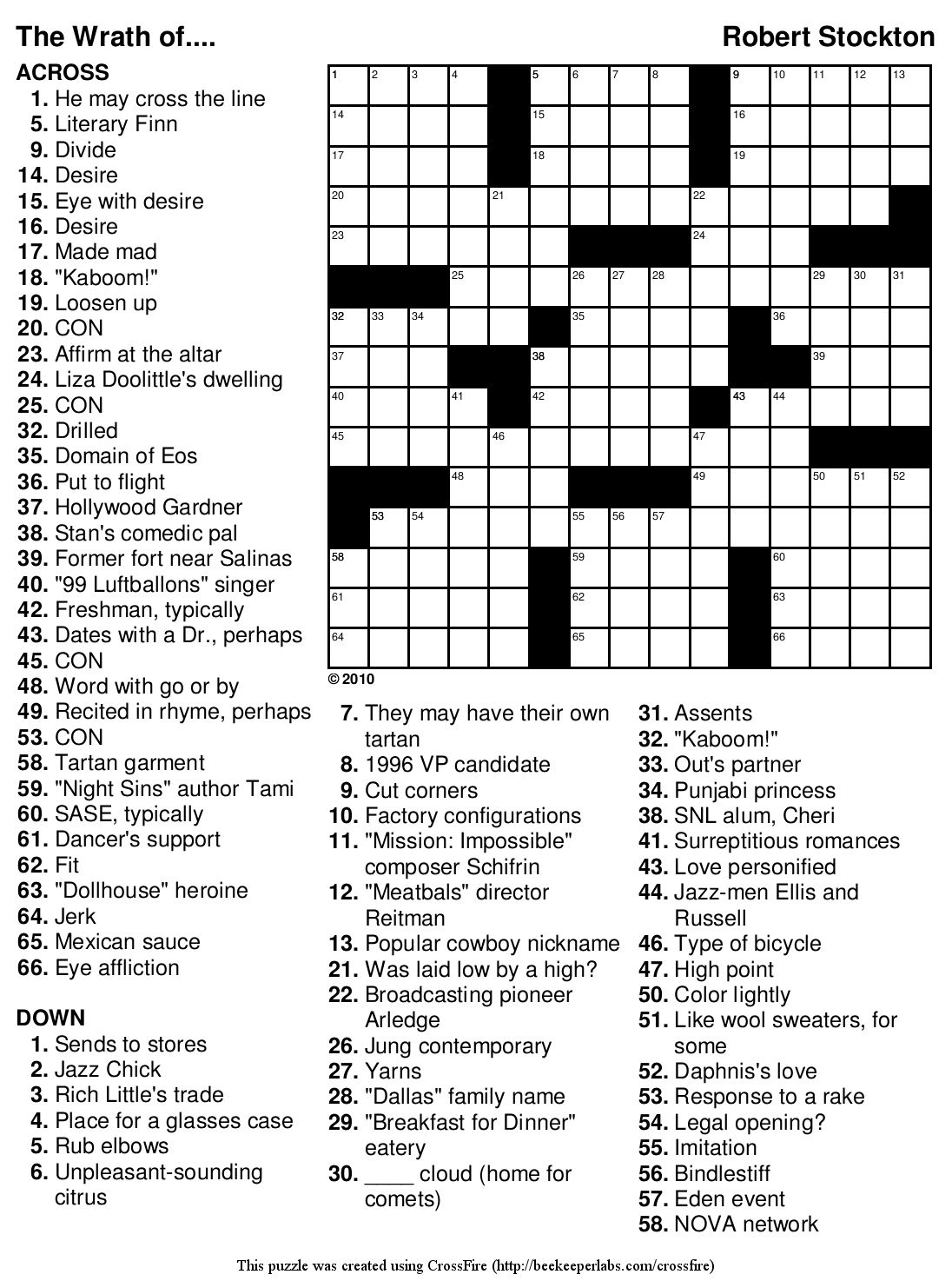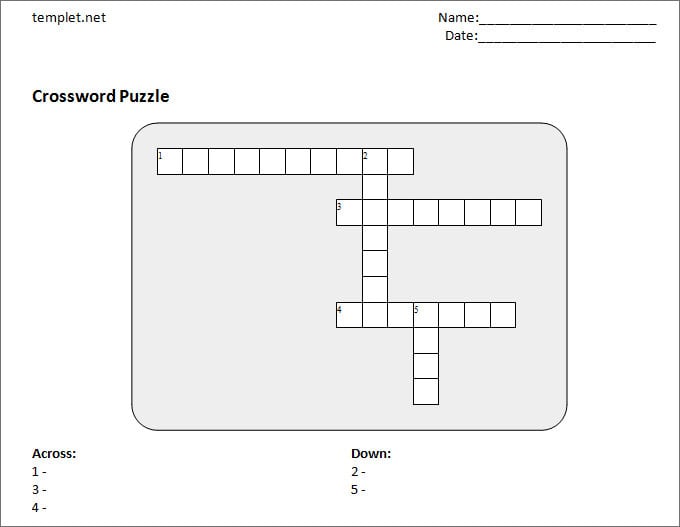Are you interested in exploring the world of crossword puzzles but unsure where to start? Crossword puzzles for beginners offer a fun and engaging way to enhance your vocabulary, improve problem-solving skills, and stimulate your brain. Whether you're a complete novice or simply looking to refine your skills, this guide will walk you through everything you need to know.
From understanding the basic rules to mastering strategies for solving puzzles more effectively, we'll cover it all. Crossword puzzles are not just a pastime; they're a mental workout that can improve cognitive function and memory retention. This article will provide you with step-by-step guidance to help you navigate the fascinating world of crossword puzzles.
As a beginner, you might find the initial challenges daunting, but with practice and persistence, you'll soon discover the joy of solving puzzles. By the end of this article, you'll have a solid foundation to start your crossword journey and enjoy the benefits that come with it.
Read also:The Inspiring Love Story Of Tyus Jones And His Wife Carrie Jones A Tale Of Basketball And Devotion
Table of Contents
- Introduction to Crossword Puzzles for Beginners
- Benefits of Solving Crossword Puzzles
- Types of Crossword Puzzles
- Tools and Resources for Beginners
- Strategies for Solving Crossword Puzzles
- Common Mistakes to Avoid
- Tips for Beginners
- Examples of Beginner-Friendly Crossword Puzzles
- Joining the Crossword Community
- Conclusion and Call to Action
Introduction to Crossword Puzzles for Beginners
Understanding the Basics
Crossword puzzles for beginners are designed to introduce newcomers to the world of word games. They typically feature simpler clues and shorter words, making them accessible to those who are just starting out. Understanding the structure of a crossword puzzle is crucial before diving into the solving process.
A crossword puzzle consists of a grid with black and white squares. The white squares are where the answers to the clues are written, either horizontally (across) or vertically (down). Each clue corresponds to a specific number on the grid, and the solver must fill in the correct word based on the clue provided.
History of Crossword Puzzles
The history of crossword puzzles dates back to the early 20th century. The first known crossword puzzle was published in 1913 by Arthur Wynne in the New York World newspaper. Since then, crossword puzzles have become a popular form of entertainment and mental exercise, enjoyed by millions around the world.
Benefits of Solving Crossword Puzzles
Solving crossword puzzles offers numerous benefits beyond mere entertainment. Research has shown that engaging in crossword puzzles can improve cognitive function, enhance vocabulary, and even delay the onset of dementia. Here are some key benefits:
- Boosts problem-solving skills
- Enhances vocabulary and language skills
- Improves memory retention
- Reduces stress and promotes relaxation
Types of Crossword Puzzles
Standard Crossword Puzzles
Standard crossword puzzles are the most common type and typically feature a symmetrical grid with a mix of long and short words. They are ideal for beginners due to their straightforward design and relatively simple clues.
Themed Crossword Puzzles
Themed crossword puzzles incorporate a central theme into their design, with many of the clues and answers relating to the chosen theme. These puzzles can be more challenging but also more rewarding for those who enjoy a specific topic.
Read also:Discovering The Inspiring Journey Of Camilla Araujo Ed A Remarkable Story
Tools and Resources for Beginners
As a beginner, having the right tools and resources can significantly enhance your crossword-solving experience. Here are some essential tools to consider:
- Crossword dictionaries and reference books
- Online crossword solvers and apps
- Printable crossword puzzles for practice
Strategies for Solving Crossword Puzzles
Start with Easy Clues
Begin by tackling the clues that seem easiest or most familiar to you. This will help you build confidence and fill in more squares, making the harder clues easier to solve.
Use Cross-Checking
Once you've filled in some answers, use the intersecting letters to cross-check and verify your responses. This technique can help you catch mistakes early and improve accuracy.
Common Mistakes to Avoid
Even seasoned solvers make mistakes from time to time. Here are some common pitfalls to watch out for:
- Rushing through clues without fully understanding them
- Ignoring the context of the puzzle
- Overlooking alternative meanings of words
Tips for Beginners
Practice Regularly
Like any skill, solving crossword puzzles improves with practice. Set aside time each day to work on puzzles, gradually increasing the difficulty as you progress.
Stay Curious
Crossword puzzles often introduce solvers to new words and concepts. Embrace the opportunity to learn and expand your knowledge by researching unfamiliar terms or topics.
Examples of Beginner-Friendly Crossword Puzzles
Here are a few examples of crossword puzzles that are perfect for beginners:
- New York Times Mini Crossword
- USA Today Crossword
- Merl Reagle's Sunday Crossword
Joining the Crossword Community
Being part of a community can enhance your crossword-solving experience. Many online forums and social media groups exist where enthusiasts share tips, discuss puzzles, and celebrate their achievements. Engaging with others can provide motivation and support as you continue your crossword journey.
Conclusion and Call to Action
Crossword puzzles for beginners offer an exciting and rewarding way to improve cognitive skills and expand your vocabulary. By following the strategies and tips outlined in this guide, you'll be well-equipped to tackle puzzles with confidence. Remember, practice is key, and staying curious will lead to continuous growth.
We invite you to share your thoughts and experiences in the comments below. Have you tried any of the puzzles mentioned in this article? What strategies have worked best for you? Don't forget to explore other articles on our site for more tips and resources to enhance your crossword-solving skills.
References:
- NYTimes.com
- USA Today
- Merl Reagle's website

